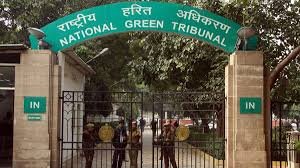CHENNAI, May 22: The National Green Tribunal (NGT) on Wednesday penalised CPCL over an oil spill in Tamil Nadu’s Nagapattinam last year, and levied a penalty of Rs five crore on the IOCL group company.
“Whether the damage is man-made or natural, the hazards of it are known in crude oil transportation and such incidents underscore the justification for imposing no-fault liability,” the NGT’s Southern Zone Bench of Justice Pushpa Sathyanarayana, Judicial Member Dr Satyagopal Korlapati, an expert member, said.
The bench had taken up the matter on its own, based a media report.
“The leak was from a 9km-long 20-inch diameter pipeline from the Chennai Petroleum Corporation Limited (CPCL) Cauvery Basin Refinery (CBR) crude storage tanks at Nagapattinam to Karaikal Port,” it was reported.
The NGT said that though it noted the stand of the Indian Coast Guard and the CPCL that there was not much damage to seawater due to the oil spillage, the bench felt it appropriate to direct an investigation to ascertain whether any remedial measures were required.
Therefore, a joint committee comprising the Central Pollution Control Board, Tamil Nadu Pollution Control Board, District Magistrate of Nagapattinam, Indian National Centre for Ocean Information Services (INCOIS) and National Centre for Sustainable Coastal Management (NCSCM) was constituted.
Based on the reports of the various experts, the committee noted that no crude oil spill was observed, the visual observation of the shoreline was clean and no fish deaths were reported due to the incident, the NGT bench said.
The counsel appearing for TNPCB stated that as per the spill pattern, 10,000 litres of oil had leaked, whereas only 9,000 litres were removed or recovered.
“The CPCL has not accounted for 1,200 litres which has either mixed with the seawater or sand. These kinds of incidents/accidents are prone to occur in future also. Merely because the reports of the various institutions have given a no-impact report, the CPCL cannot be absolved of its liability. Even though the leakage in the pipeline happened not because of the negligence or mistake of the CPCL, but only due to an external force, the CPCL is liable,” the bench noted.
The environmental law has seen a significant shift from fault-based to no-fault liability principles. This transition aims to address inherent challenges in holding polluters accountable for certain exceptions relating to reasonable case, third party risks, and victim negligence, the bench said.
The applicability of no-fault liability in cases involving hazardous materials like crude oil serves a dual purpose, as it upholds the duty of care for entities in control of such materials even in the absence of proven negligence, it added.
“Secondly, it ensures that compensation is commensurate with the actual damages occurred. This theory is not new to the legal system, as several countries, including United States of America, has the Comprehensive Environmental Response, Compensation and Liability Act, 1980 commonly known as ‘Superfund’ to address the cleanup of hazardous waste sites and respond to environmental emergencies involving pollutants and contaminates,” the bench noted.
“Therefore, we hold that the CPCL is to be subjected to the principle of no-fault liability, and impose a penalty for improvement of the environment and health of the people of the (Nagapattinam) district,” it said.
Holding CPCL liable for the incident, the NGT directed it to pay an amount of Rs five crore within a period of two months and said that it should be deposited with the TNPCB.
“The said amount collected should be utilised for improvement of the environment and health of the people of the district,” it ruled. (PTI)












